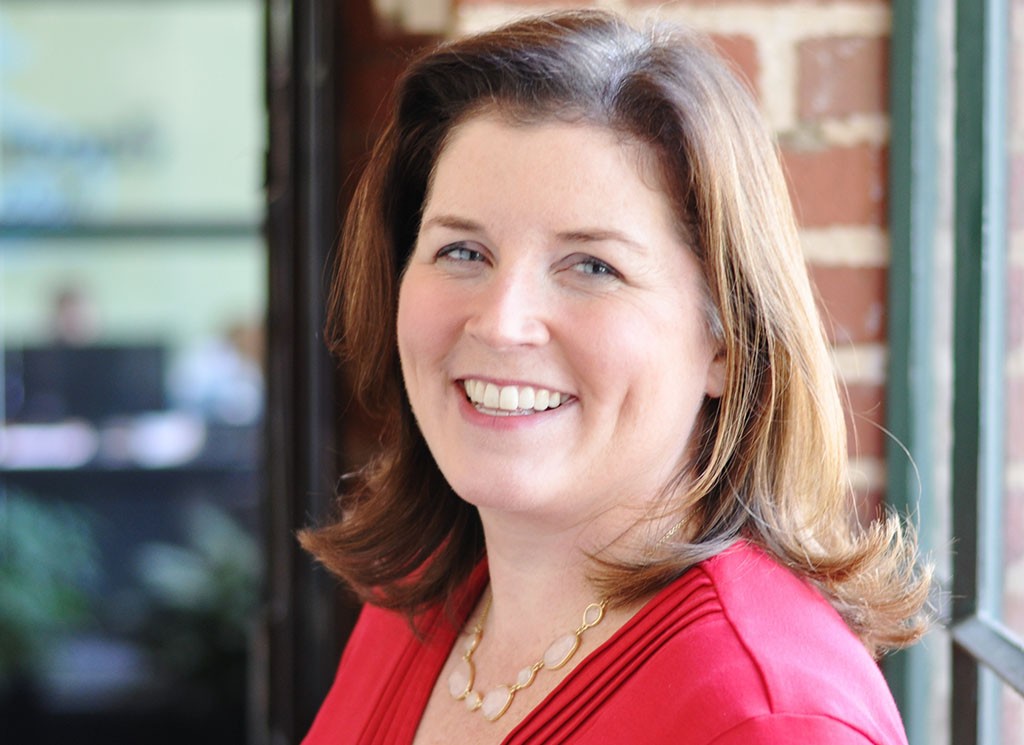Pro bono work always in demand
Laura Williams-Tracy, Contributing Writer
Economy in recovery or recession, need persists for lawyers donating time
Heather Culp, a bankruptcy lawyer at Essex Richards, has a bit more time to volunteer her legal services these days. The economic recovery has leavened the crush of foreclosures and economic troubles she toiled with five years ago.
Each year, Culp provides nearly 100 hours of free legal help, primarily assisting elderly clients who are facing a personal financial crisis because of medical bills. The work comes through Legal Aid of North Carolina, where Culp volunteers, or it simply walks through the door with people uncertain how they will pay their legal bills.
“With every one of these clients, the conversation starts with ‘I never meant to be here,'” Culp says. “These are people who always paid their bills and then one thing happens, a medical issue sometimes that starts them into trouble.”
Many lawyers say economic ups and downs largely don’t move the needle on the amount of pro bono work they provide. Whether in recession or recovery, the need is always increasing, and the push is stronger than ever to find lawyers willing to give freely of their time and expertise.
“My general sense is the health of economy and the demand on work don’t seem to have a lot to do with people’s willingness to do pro bono work,” says Ted Fillette, senior managing attorney at Legal Aid of North Carolina.
In 2014, more than 700 lawyers volunteered 5,000 hours of assistance to clients of Legal Aid, a statewide organization, and Legal Services of the Southern Piedmont, which serves local clients. “When people are making more money, they are feeling more generous and, if somebody puts in the right ask, they may take it, even if means working weekends,” Fillette says.
Law firms that have a structured approach to pro bono commitments – usually large practices – encourage attorneys to adopt the American Bar Association’s recommendation of 50 hours of such work per lawyer per year. But a study by the law-student group Building a Better Legal Profession found that most large law firms fall short of that goal. During the recession, many young associates used pro bono hours toward their billable-hour goals for the year.
In 2013, New York became the first state to require attorneys seeking admission to the bar to perform pro bono work, a 50-hour mandate. North Carolina’s professional-conduct rules urge lawyers to volunteer their services but don’t require it.
“We really rededicated ourselves to pro bono work in 2012,” says Jeff Tibbals, chair of Nexsen Pruet’s pro bono committee, which reviews and approves all volunteer work to ensure there are no conflicts of interest with clients. “Pro bono work played a large role in the history of our firm, but it had not been formally institutionalized. We needed policies and procedures in place to make sure we had streamlined systems for intake and related issues.”
Likewise, the Sodoma Law firm created a foundation in 2014 to aggregate its charitable endeavors to have maximum impact. The firm was recognized by the Mecklenburg County Bar this year for the foundation, which contributed 382 hours of pro bono work to 47 clients referred by the Council for Children’s Rights, Safe Alliance and others.
“Our efforts have not been recovery-driven,” says Nicole Sodoma, who opened her firm in 2008. “We have always made it a point to give back to the community in some way.”
For lawyers in big firms and small, the altruistic instinct to help someone in need has to be balanced with commitments already made to paying clients. Lawyers say many of the organizations they volunteer with make sure pro bono assignments are made in manageable portions.
“Legal Services gives me enough information from their intake process for me to figure out quickly if it’s manageable or if it’s more of a time or expense commitment than I want,” says Essex Richards’ Culp.
At Nexsen Pruet, the approval process for pro bono work comes with an engagement letter to the new client. It specifies the scope of work rather than creating an ongoing retainer relationship.
Firms also are working to discourage the notion that pro bono work is best handled by litigators and something transactional lawyers might want to avoid so they don’t end up in an adversarial role before a judge.
“Lawyers who don’t do litigation are terrified of litigation,” says Barbara Wright, senior company counsel at Wells Fargo & Co. She manages defense litigation and regulatory enforcement for the bank and has volunteered for three decades at the Council for Children’s Rights. She represents children in contested custody cases.
“The stuff I do I think any lawyer could do, but it would be terrifying to try a case if you’ve never tried a case before and a child’s life is going to be affected by it,” she says.
Law firms recognize there are other pro bono opportunities for transactional lawyers such as immigration, bankruptcy and criminal-record expungement.
Three years ago, Parker Poe teamed with the in-house lawyers of clients Duke Energy Corp. and Ingersoll-Rand plc to focus on reducing a backlog of cases for criminal-record expungement. The process seals records of a prior criminal arrest that didn’t result in conviction. An arrest can inhibit finding work.
“I think it’s very positive when law firms can team up with in-house counsel
of clients, because it’s a win-win for everybody,” says Will Esser, chairman
of Parker Poe’s pro bono committee. Last year, the team contributed 75 hours to the task.
The partnership is one way law firms are working to expand the impact of pro bono work, which often by its nature is a series of one-off cases, each
dealt with over a long period.
Esser says groups such as Legal Aid and Legal Services are seeing a much greater need for services such as immigration, landlord-tenant disputes and veterans’ rights. At the same time, funding for legal aid has been cut by the state.
“Because of that, they have done more of a push to get a lot more pro bono volunteers,” he says. “I think everyone in town is pushing to try to help them out more.”
For many attorneys, the work can become a reward unto itself.
“I went to law school to work with kids and somewhere along line took a hard left into banking,” says Wells Fargo’s Wright. “This helps keep me connected to what is deeply satisfying to me. It’s so rewarding when you can take a kid in a bad situation and make their life better. That’s some juice.”
http://m.bizjournals.com/charlotte/print-edition/2015/05/01/pro-bono-work-always-in-demand.html

